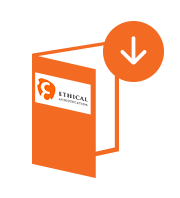EAC members are highly qualified experts who may or may not have contributed to writing the study protocol. They are also busy people with many different points of interest and responsibilities. It therefore comes to the sponsor to ensure that EAC members are adequately trained (and occasionally re-trained) in the procedures and approaches of the particular study.
Every clinical study is, and should be, a special case, investigating a hypothesis that has not yet been verified.
In most cases, the sponsor company is testing the hypothesis that one of their drugs is effective and safe or investigates the optimal dose of a given molecule.
Adjudication, whether it concerns patients identification or endpoint assessment, may be decided based on the complexity of the study, the criteria for patient enrollment or the nature of anticipated events. It is common that external experts participate in the writing of the protocol and some of these same experts can be part of the adjudication committee. Alternatively, specialized groups of experts, frequently from prestigious academic institutions, offer adjudication as an integrated service.
In the first case, the experts who participated in the protocol writing are likely to know very well the specifics of the study and may even have decided which events need to be adjudicated and elaborated the criteria.
On the other hand, because clinical studies do not always mimic medical practice, when adjudication time comes there is room for confusion that increases the rate of disagreement and requires additional work for their resolution.
In addition, if software tools are used for the management of the event packages, these experts may not be familiar with the use of the software.
A good training made mandatory in the charter is of great help in clarifying specific details and making reviewers aware of the points to pay attention to.
In case of higher than expected disagreement rates, either overall or locally, re-training must be also planned in the charter and performed promptly by the sponsor.
In the case of specialized adjudication services groups, the use of software tools is usually flawless, and study rules more systematically followed.
On the other hand, reviewers may be less familiar with some of the study details and the risk exists of a deviation from the expected performance metrics triggering the need for re-training.
In conclusion, it is the sponsor’s responsibility to document training and re-training content and trigger conditions, deliver the training, monitor quality metrics and deliver re-training as needed based on the charter provisions. Finally it is also the sponsor’s responsibility to document training and file documentation in the trial master file (TMF).
DOWNLOAD NOW THE FREE ENDPOINT ADJUDICATION HANDBOOK
The Complete Manual / Reference Book (34 pages) with all the topics related to the Independent Endpoint Adjudication Committees Management




